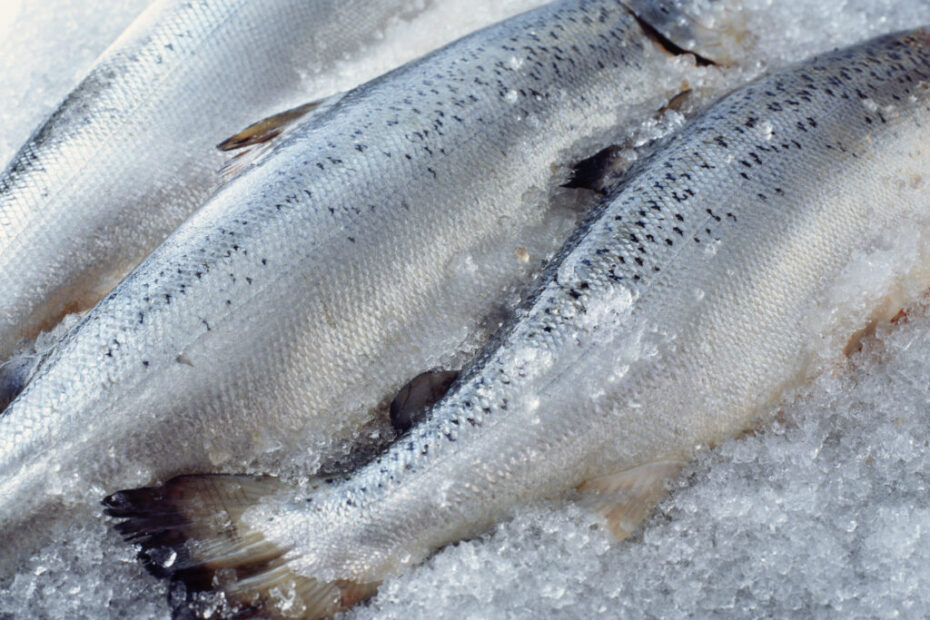Building Maritime Infrastructure for Ketchikan’s Fishing Community
KAPA is implementing a community ice-making facility at Saxman Seaport to serve independent commercial fishermen, charter operators, and seafood processors. This pilot project launches in 2026, ahead of the full Food Hub construction.
Project Goals
- Provide affordable, accessible flake ice for Ketchikan’s maritime community
- Validate demand for ice services before scaling to larger infrastructure
- Generate immediate revenue to support KAPA operations
- Establish operational systems for shared-use facility management
- Support local fishing economy by reducing ice costs and improving access
Target Users
Primary Commercial Users
- Independent hand trollers
- Small-scale fish buyers and processors
- Direct-marketing fishermen
Charter & Sport Fish Operations
- Charter fleet operators (Baranof and others)
- Independent sport fishers
- Weekend recreational users
Facility Specifications
Production Capacity: 1,500-3,000 lbs of flake ice per day (0.75-1.5 tons)
Location: TBD – evaluating sites at Saxman Seaport or within Ketchiakn Ports and Harbors
Equipment: Self-contained Scotsman flake ice system with insulated storage
Access: Exploring options; self-service system preferred
Operating Season: Year-round availability with peak service May-September
Implementation Approach
KAPA is using a phased Minimum Viable Product (MVP) approach:
Phase 1 (Winter 2025): Install single ice-making unit with basic tote distribution system
Phase 2 (Spring 2025): Test operations with early-season users; collect feedback
Phase 3 (Summer 2025): Scale to dual-unit system if demand validates expansion
Future Integration: Expanded ice services will be incorporated into the full Food Hub waterfront development (2026+), including drive-down dock, hoist crane, and shore-based ice house.
Equipment Selection
After evaluating multiple commercial ice-making systems, KAPA selected the Scotsman Prodigy F1522A-32E flake ice machine for its:
- Self-contained design (no external condenser required)
- Compatibility with existing dock infrastructure
- Standard single-phase power requirements
- Compact footprint suitable for weather-protected enclosure
- Proven reliability in marine environments
Next Steps & Timeline
Q4 2024-Q1 2025
- Finalize equipment purchase and site preparation
- Complete permitting and utility connections
- Install weather-protected enclosure and dock infrastructure
Q2 2025
- Equipment installation and testing
- Staff training and operational procedures
- Marketing to target user groups
- Pre-season account setup
Q3 2025 (Summer Fishing Season)
- Full operations begin
- Data collection on usage patterns
- Customer feedback and system refinement
- Assessment of expansion need
Q4 2025-Q1 2026
- Evaluation of pilot performance
- Decision on second unit installation
- Integration planning with Phase 1 Food Hub construction
Success Metrics
KAPA will evaluate the pilot program based on:
- Number of regular commercial accounts established
- Volume of ice sold (daily and seasonal)
- Customer satisfaction and repeat usage
- Equipment reliability and maintenance costs
- Operating cost management vs. projections
- Revenue generation per customer segment
Community Impact
This ice access project directly supports KAPA’s mission by:
- Reducing costs for independent fishermen competing with larger operations
- Enabling direct marketing by providing ice access for small-scale operators
- Supporting food security through local seafood processing infrastructure
- Generating revenue to sustain KAPA operations
- Testing systems for the larger Food Hub shared-use model
Get Involved
For Commercial Fishermen & Processors: Interested in pre-season account setup or providing input on ice needs? Contact KAPA to join our user advisory group.
For Funders & Partners: This pilot demonstrates KAPA’s ability to deliver practical infrastructure projects that support Ketchikan’s maritime economy. Contact us to learn about partnership opportunities.
